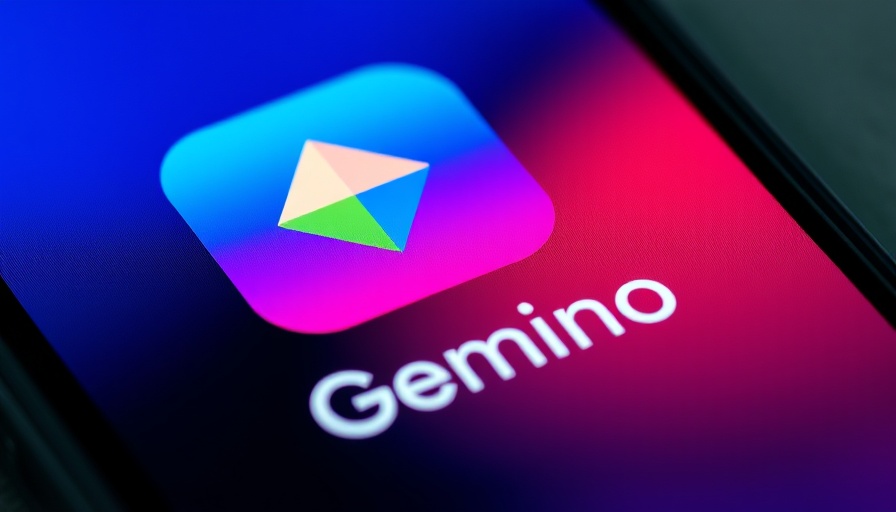
The Transition from Google Assistant to Gemini: What to Expect
In a bold move that solidifies its shift toward AI-driven technology, Google has officially announced that the Google Assistant will be phased out on mobile devices, making way for its new chatbot, Gemini. This transition underscores Google's commitment to advancing conversational AI while enriching user experiences.
The Rationale Behind Replacing Google Assistant
The decision to replace Google Assistant has been hinted at for some time, with reports indicating that Google sees Gemini as a more versatile and capable platform. Unlike its predecessor, Gemini is built on the foundational principles of generative AI, allowing for richer interactions—including multimodal conversations and advanced research capabilities. This strategic evolution reflects the shifting landscape of consumer expectations, where users are not just seeking basic voice commands but rather a more integrated, intelligent assistant that can manage complex tasks with ease.
Gemini: More Than Just a Replacement
Gemini promises to deliver a superior experience compared to Google Assistant, equipped with enhanced capabilities that include better task management, a more extensive range of interactions across multiple Google and third-party applications, and across various media types—from text and images to audio and even live video. As Google’s Brian Marquardt emphasizes, Gemini has been designed to enhance productivity and creativity, giving users a tool that adapts to their needs and learning style.
Device Compatibility and Rollout Timeline
As the transition unfolds, users can expect Gemini to replace Google Assistant largely by this year’s end. Phones that meet the criteria of at least 2GB of RAM and are running Android 10 or later will receive the upgrade, while older models may retain access to Google Assistant for the time being. The eventual upgrade will not stop at mobile devices; tablets, smartwatches, and other connected devices like smart speakers will also undergo this transition, ensuring users receive a cohesive experience across platforms.
Future Predictions: Gemini's Role in Daily Life
Looking Forward, Gemini is expected to revolutionize how individuals interact with technology daily. With its capability to perform complex tasks—such as generating research reports in minutes—Gemini will likely become not just an assistant but a critical partner in users’ productivity workflows. Its multi-modal processing is set to enhance accessibility, allowing users to engage with their environment in a more natural and engaged manner. As businesses increasingly rely on automation and AI, Gemini’s emergence could redefine expectations for digital assistance.
A Call to Embrace the Change
For business professionals, marketing leaders, and tech enthusiasts, it’s crucial to start adapting to Gemini. Familiarizing yourself with its capabilities can provide a competitive edge in harnessing AI for enhanced productivity and better user engagement. As Gemini continues to grow, engaging with the technology early on will equip you with insights that can shape your strategies moving forward.
As we stand on the brink of this significant transition, embracing the change will not only enable smoother adaptation but also open up new avenues for leveraging AI. Keep a lookout for updates from Google to ensure you're prepared to make the most out of Gemini's capabilities.
 Add Row
Add Row  Add
Add 




 Add Row
Add Row  Add
Add 

Write A Comment